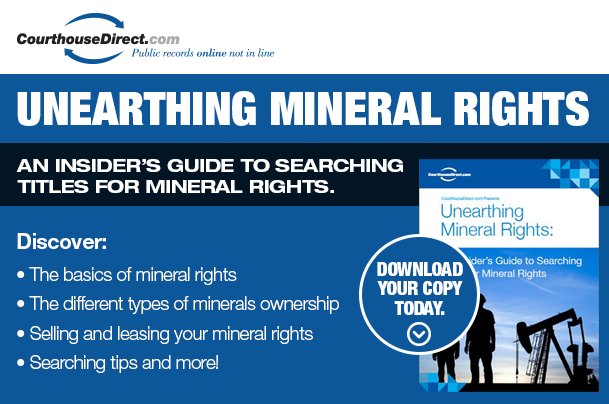 Soil sovereignty is an important if difficult-to-understand concept that has dramatic implications for traditional notions of property ownership. In particular, the concept of soil sovereignty affects the disposition of mineral rights for virtually every landowner who claims fee simple ownership over his or her property. During the past two and a half centuries, this topic has produced a substantial body of legal precedent. Although soil sovereignty is a multifaceted concept to which legal scholars have devoted considerable time and resources, it's possible to touch on some of its most pertinent implications in a relatively brief article.
Soil sovereignty is an important if difficult-to-understand concept that has dramatic implications for traditional notions of property ownership. In particular, the concept of soil sovereignty affects the disposition of mineral rights for virtually every landowner who claims fee simple ownership over his or her property. During the past two and a half centuries, this topic has produced a substantial body of legal precedent. Although soil sovereignty is a multifaceted concept to which legal scholars have devoted considerable time and resources, it's possible to touch on some of its most pertinent implications in a relatively brief article.
Theoretical Underpinnings of Soil Sovereignty
In theory, the concept of soil sovereignty is as old as civilization itself. After all, soil sovereignty is underpinned by the ownership claims that tribes, states, nations and other political entities make over defined pieces of land. As with many arrangements between sovereign entities, these claims are defensible by force.
Although the concept of soil sovereignty may have had immediate bearing in a world defined by tribal clashes and frequent disputes over land, it seems less relevant in a more peaceful modern setting. At the same time, soil sovereignty remains central to the American conception of property ownership. Since all private landowners in the United States derive the right to own property from the sovereign force by which the U.S. government or the Republic of Texas appropriated the country's lands, the ability of these landowners to maintain a "chain of ownership" that stretches back to the original sovereign declaration is a prerequisite for the proper defense of their holdings.
Differing Conceptions
In the United States, the U.S. government generally established its sovereignty over the mid-latitudes of North America by treaty, violence or de facto appropriation. Over the past four centuries, the lands that the colonial, federal and state governments claimed as sovereign have been distributed to private landowners in a piecemeal manner. As the original private owners of sovereign land, the individuals who received land from the federal government enjoyed complete freedom to improve or exploit the surface of their parcels as well as the minerals contained underground. In other words, these individuals enjoyed all of the rights and privileges of land ownership that their sovereign governments had previously enjoyed.
In some other countries, landowners who receive their property from a sovereign state don't enjoy such expansive rights. For instance, the colonial government of New Spain and the subsequently established federal government of Mexico retained the right to exploit the minerals underneath private land within their borders. Whereas the American conception of soil sovereignty imbues U.S. soil with added value thanks to its allowance for so-called "mineral rights", other governments' conceptions of the same basic concept might be very different.
Implications for Modern Landowners
Soil sovereignty confers tremendous power on modern landowners who can establish a direct link between their title deeds and the sovereign claim to the land that they own. Such a direct "chain of ownership" forecloses the possibility that an individual's right to own his or her land can be challenged by a rival landowner. For this reason, it's crucial that landowners obtain a general warranty deed for their land. This type of deed serves as legal proof that the landowner's interest derives from the sovereign and hasn't been abridged in any fashion.
Mineral Leases and Royalties
Landowners who face no competing claims to their property have the right to dispose of the minerals and resources that underlay their land. Since mineral and energy extraction is a painstaking process, this is generally done through a system of leases that permits third-party companies to perform this task on behalf of landowners. Through these leases, landowners permit extraction companies to keep the bulk of the revenues associated with the property's mineral wealth without actually assuming control of the land itself. In effect, the landowner retains his or her sovereign claim to the soil that he or she owns.
* Image courtesy of FreeDigitalPhotos.net





















